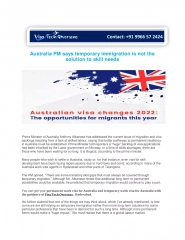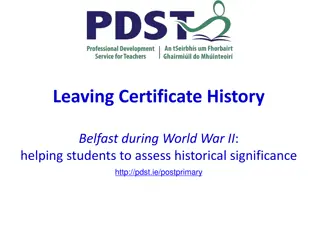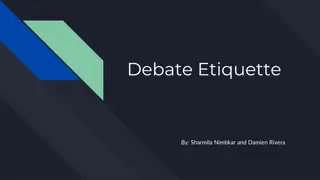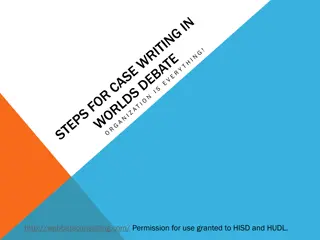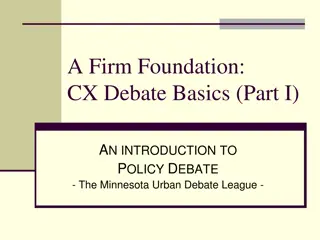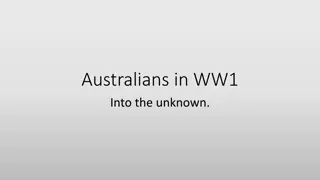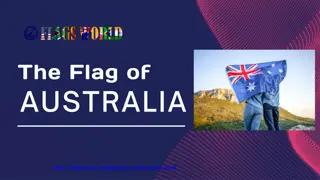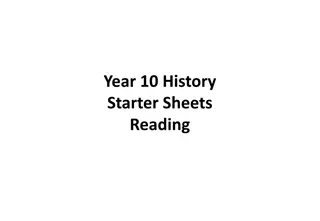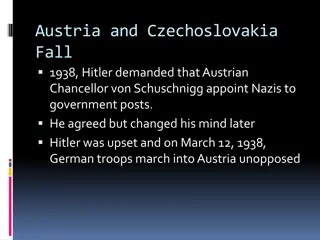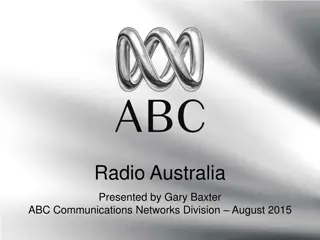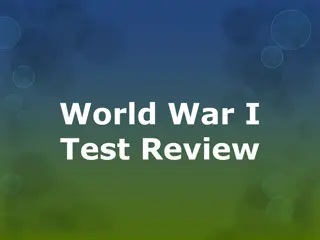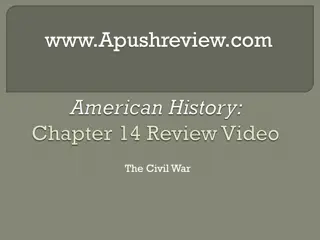The Conscription Debate in Australia during World War I
Australia's involvement in World War I and the contentious issue of conscription are explored through two failed referendums. The impact of public opinion, recruitment drives, and the consequences of the war on the decision-making process are highlighted. The evocative posters, poems, and cartoons from that era reflect the emotional turmoil and societal divisions faced during this pivotal period in Australian history.
Download Presentation

Please find below an Image/Link to download the presentation.
The content on the website is provided AS IS for your information and personal use only. It may not be sold, licensed, or shared on other websites without obtaining consent from the author.If you encounter any issues during the download, it is possible that the publisher has removed the file from their server.
You are allowed to download the files provided on this website for personal or commercial use, subject to the condition that they are used lawfully. All files are the property of their respective owners.
The content on the website is provided AS IS for your information and personal use only. It may not be sold, licensed, or shared on other websites without obtaining consent from the author.
E N D
Presentation Transcript
THE CONSCRIPTION DEBATE Australia s involvement in World War I
CONSCRIPTION IN AUSTRALIA As the news came from Gallipoli that more troops were needed on the Front, the call for recruits was sent out across the Empire. Britain passed laws to introduce conscription in January 1916. Australian Prime Minister Billy Hughes wanted to follow suite and held the first referendum to poll the Australian population in October 1916. The voting was close a NO vote was passed. A massive recruitment drive was launched across the Empire however supply could not meet demand as huge losses were experienced in the trenches and on the battlefields of Sommes and Ypres. A second referendum was held in December 1917 and this time, a resounding NO came from the Australian public. Many contributed this change in public opinion to the climbing death toll on the battlefields. As a result of two failed referendums, Conscription was not introduced in Australia during the Great War.
THE BLOOD VOTE 1. What impression do the title and graphics of the poem give the reader? 2. In your opinion, what has a greater impact on the reader the poem itself or the graphics? Explain your answer. 3. Why does the author make the reader feel personally responsible for killing men? What impact does this have on you as a reader?
YOUR TURN NEXT! 1. What is being depicted in this cartoon? 2. Why do you think the author has chosen to depict each nation the way he has? What symbols would you have used to convey the same message?
THE ANTIS CREED 1. Which belief, as listed on the poster, appeals most strongly to you and why? 2. What is the impact of the use of language in this poster? (Pay particular attention to the use of repetition and emotive language ) 3. How do you think a patriotic Australian at the time would have reacted to the line I believe I m worm enough to vote no ? Explain your answer.
THE DEATH BALLOT 1. What does the title of the cartoon suggest and what is the intended impact on the audience? 2. How has the cartoonist used imagery to impact on the audience? 3. Do you think this would have been an effective campaign? Give considered reasons to support your answer.
VOTE NO MUM 1. Who is the intended audience of this cartoon and how do you know? 2. Are the words or the image a more powerful form of persuasion in this poster? Provide considered reasons to support your answer.
WAS THE AUSTALIAN GOVERNMENT RIGHT TO CONSCRIPT TROOPS DURING WORLD WAR I? FOR AGAINST


